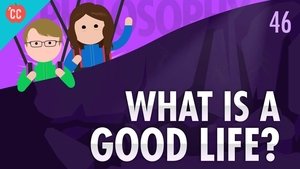
In our final episode of Crash Course Philosophy, we consider what it means to live a good life. We’ll look at the myth of Sisyphus, Robert Nozick’s experience machine, Aristotle’s eudaimonistic picture of a good human life, and the existentialists’ view that we each determine the value of our own lives. And we’ll think about how you, too, can live the life of a philosopher.

As we wrap up Crash Course Philosophy, we’re using the things we’ve learned to explore big issues like the value of life. Today, we’re discussing abortions in cases of fetal abnormality, assisted suicide, and euthanasia. We will consider the standard of substituted judgment and the values people hold on both sides of these issues—values about the sacredness of life, and the importance of a life of quality, as well as the values of personal liberty and avoiding pain.
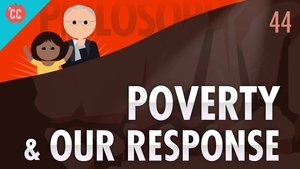
We’re picking up where we left off last time, exploring the “ethics of care” and how it applies to extreme poverty. Are we responding to global poverty in a moral way? Philosophers like Peter Singer argue that we have an obligation to prevent harm caused by poverty, whereas Garrett Hardin offers a “lifeboat analogy” to explain our obligations to focus on caring for our own.
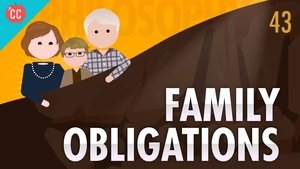
Today we are investigating our moral obligations to our parents and our families. Do we owe our parents anything as adults? Would it be a good idea to license parents? We’ll explore these questions as well as the ethics of care, and some potential problems that type of approach to morality carries with it.
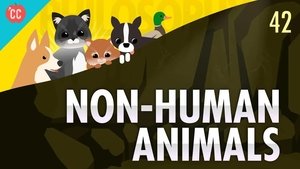
Today we are taking all the things we have learned this year about doing philosophy and applying that to moral considerations regarding non-human animals. We’ll explore what philosophers like Peter Singer and Carl Cohen have to say about their use, including the concept of equal consideration of interests.
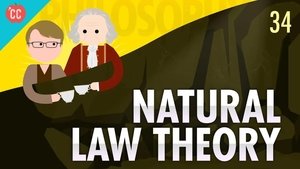
Our exploration of ethical theories continues with another theistic answer to the grounding problem: natural law theory. Thomas Aquinas’s version of this theory says that we all seek out what’s known as the basic goods and argued that instinct and reason come together to point us to the natural law. There are, of course, objections to this theory – in particular, the is-ought problem advanced by David Hume.
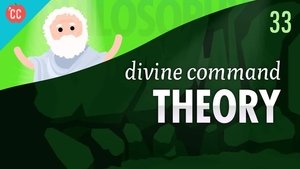
As we venture into the world of ethics, there are a lot of different answers to the grounding problem for us to explore. One of the oldest and most popular is the divine command theory. But with age comes a long history of questions, too, such as the dilemma presented by Plato known as the Euthyphro Problem.
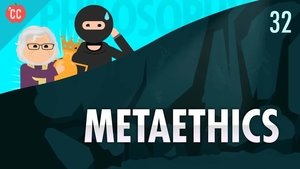
We begin our unit on ethics with a look at metaethics. Hank explains three forms of moral realism – moral absolutism, and cultural relativism, including the difference between descriptive and normative cultural relativism – and moral subjectivism, which is a form of moral antirealism. Finally, we’ll introduce the concept of an ethical theory.
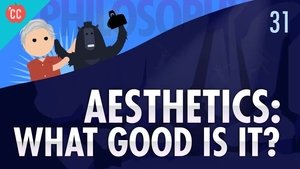
How do art and morality intersect? Today we look at an ethically questionable work of art and discuss R. G. Collingwood’s view that art is best when it helps us live better lives. We’ll go over Aristotle’s concept of catharsis and how it can resolve the problem of tragedy. We are also exploring the paradox of fiction and the debate between autonomism and moralism.
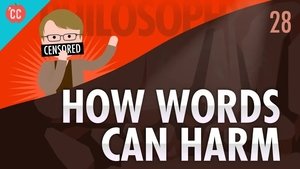
Content warning: today’s episode contains language that some viewers might find upsetting and that may not be viewable in all settings. We’ve talked about how language works and how powerful it can be. Sometimes, that power can be harmful. Today, Hank explains the use/mention distinction, the difference between dirty words and hate speech, as well as thick concepts and metaphorical identification.
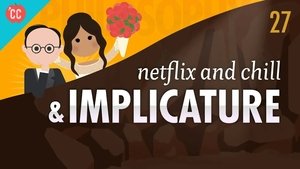
Last week we talked about language and meaning. Today, Hank explores some of the things that complicate meaning and how we get around that. We’ll explain conversational implicature, the cooperative principle, and the four main maxims of successful communication, as laid out by Paul Grice, as well as performative utterances.
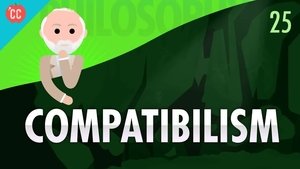
As we continue explore free will, today Hank considers a middle ground between hard determinism and libertarian free will: compatibilism. This view seeks to find ways that our internally motivated actions can be understood as free in a deterministic world. We’ll also cover Frankfurt Cases and Patricia Churchland’s rejection of the free-or-not-free dichotomy and her focus on the amount of control we have over our actions.
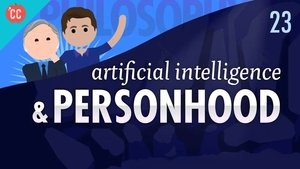
Today Hank explores artificial intelligence, including weak AI and strong AI, and the various ways that thinkers have tried to define strong AI including the Turing Test, and John Searle’s response to the Turing Test, the Chinese Room. Hank also tries to figure out one of the more personally daunting questions yet: is his brother John a robot?
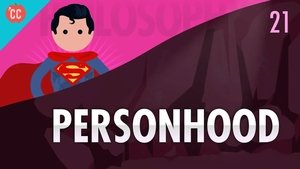
Now that we’ve started talking about identity, today Hank tackles the question of personhood. Philosophers have tried to assess what constitutes personhood with a variety of different criteria, including genetic, cognitive, social, sentience, and the gradient theory. As with many of philosophy’s great questions, this has much broader implications than simple conjecture. The way we answer this question informs all sorts of things about the way we move about the world, including our views on some of our greatest social debates.
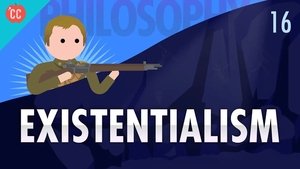
Now that we’ve left behind the philosophy of religion, it’s time to start exploring what other ways might exist to find meaning in the world. Today we explore essentialism and its response: existentialism. We’ll also learn about Jean-Paul Sartre and his ideas about how to find meaning in a meaningless world.
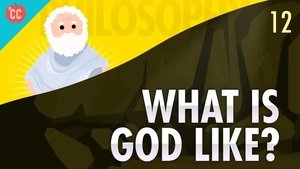
Today we are moving on from the existence of God to look at the philosophical debate surrounding the traditional divine attributes - omnipotence, omniscience, omnitemporality, and omnibenevolence. We are exploring the puzzles that these attributes create as well as some possible solutions to those puzzles, from Aquinas’ ideas of analogical predication, to the work of Eleanor Stump.
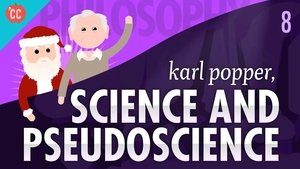
The early 1900s was an amazing time for Western science, as Albert Einstein was developing his theories of relativity and psychology was born, as Sigmund Freud and psychoanalysis took over the scientific mainstream. Karl Popper observed these developments firsthand and came to draw a distinction between what he referred to as science and pseudoscience, which might best be summarized as science disconfirms, while pseudoscience confirms. While the way we describe these disciplines has changed in the intervening years, Popper’s ideas speak to the heart of how we arrive at knowledge.
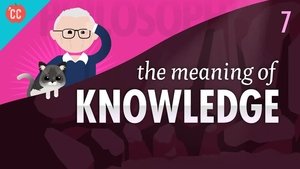
On today’s episode...CATS. Also: Hank talks about some philosophy stuff, like a few of the key concepts philosophers use when discussing belief and knowledge, such as what defines an assertion and a proposition, and that belief is a kind of propositional attitude. Hank also discusses forms of justification and the traditional definition of knowledge, which Edmund Gettier just totally messed with, using his Gettier cases. Many thanks to Index the cat for his patience in the filming of this episode.
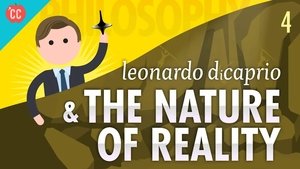
Today Hank gains insight from that most philosophical of figures...Leonardo DiCaprio. In this episode, we’re talking about the process of philosophical discovery and questioning the relationship between appearance and reality by taking a look at Plato’s famous Myth of the Cave. All with a little help from our good pal Leo.

Today Hank begins to teach you about Philosophy by discussing the historical origins of philosophy in ancient Greece, and its three main divisions: metaphysics, epistemology, and value theory. He will also introduce logic, and how you’re going to use it to understand and critically evaluate a whole host of different worldviews throughout this course. And also, hopefully, the rest of your life.